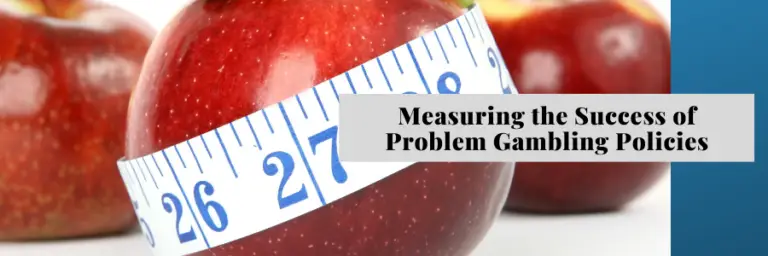Commentary: What Will It Take To Fix Online Poker?

Nearly five years ago, during the whole, PokerStars dismantles its Supernova Elite program” fiasco, I wrote an article that equated the online poker ecosystem to gyms. Five years later, the online poker ecosystem remains an unsolved riddle. Little has changed, and the same debates are still raging.
My previous article focused on one facet of the online poker ecosystem, the actual value of winning players, and how a sizable rift existed when it came to each side’s perception of that value.
As I suspected in 2015, the “RIP PokerStars” declarations were overblown. PokerStars is fine, albeit, the company has shifted away from its original poker-first model. And as I anticipated, the professionals either adapted to the new reality at Stars, or they sought out “greener pastures.” And PokerStars doesn’t seem to regret letting high-volume winning players migrate to its competitors’ platforms.
But how professional players fit into the ecosystem is only one piece of a complicated puzzle. This time around, I’m going to focus on the other players, what the industry likes to call recreational players and how these players should be courted.
What Is a Recreational Poker Player, and What do They Want?
Before discussing them, it’s crucial to define recreational players. My views on what a recreational player is have narrowed over the years, but clearly defining the different player types is more important than what box you eventually place them in.
Whether it’s poker or daily fantasy sports, recreational players are losing players – don’t let anyone try to convince you otherwise. Serious players can be winners or losers, but recreational players are net-depositors, and they’re the lifeblood of the ecosystem.
Recreational poker players are the source of the new money in poker. Whereas winning players are continually withdrawing money from the sites, and the sites are slowly bleeding players through the rake. Without the influx of cash from recreational players, the ecosystem would crumble and slowly cannibalize itself – which is what has been happening for years.
Additionally, recreational players aren’t serious about the game, they simply enjoy playing it, or it fills a void in their life – A void that can be positive or negative. The critical part here is recreational players are mainly going to improve through lived experience. They’re not going to spend a lot of time or money trying to become great poker players. In fact, most will put zero effort into improving, and a flush draw will always be worth chasing.
Basically, if you want to know what motivates a recreational poker player, write down the Top 10 reasons you, as a serious poker player, enjoy the game, and invert it.
As such, the aspirational marketing the online poker industry employed for years has had a devastating toll on its long-term health. Companies doubling down on the “study hard and you can be a poker pro,” campaign are doing a disservice to recreational players, poker pros, and everyone in between.
For a Rec, It’s About an “Enjoyable Experience”
Recreational poker players are in search of one thing: an enjoyable experience.
Providing them with that is easier said than done.
Winning is enjoyable, but for recreational players, wins are going to be few and far between. As such, the game needs to provide entertainment and, more importantly, provide recreational players with the feeling they’re not losing money, rather, they’re spending money.
There are three potential drop-off points when it comes to creating an enjoyable experience. There’s the before, the during, and the after.
Here’s what creating an enjoyable experience likely requires at each point:
- Before – There are very few barriers to entry
- During – The gameplay is exciting and engaging
- After – Players believe the game is fair and they can compete
Now let’s take a more in-depth look at each of these aspects.
Barriers to Entry
Beyond actual access to online poker sites, there are three main barriers to entry for games like poker and DFS.
- Learning curve – how quickly and easily can a person become competent at the game
- Cost – how much will it cost to learn/play the game
- Time – how much time is a person willing to dedicate to learning/playing the game
Online poker also has to deal with a mandated fourth barrier, invasive registration.
Because of regulatory requirements in legal markets, players must part with a lot of personal information. There’s the typical name, address, phone number, but also details like your social security number.
That’s information people tend to guard, and information they don’t have to provide for most online activities.
However, it’s the three listed above that online poker operators have some control over.
The Learning Curve
When it comes to appealing to the masses, the learning curve of a game is significant. That hearkens back to the famous poker axiom attributed to Mike Sexton, “poker takes a minute to learn and a lifetime to master.” Fortunately, the basic mechanics of poker are still quite easy to learn.
That said, what constitutes competency isn’t the same. Poker rules are still relatively simple, but the Sexton quote dates to a time when poker knowledge was far more rudimentary. Things like pot odds and hand ranges are considered common knowledge in 2020, but back in 2001, common knowledge was knowing what hands beat what hands and when to post a blind.
The result is that the mechanics of playing poker are the same, but the amount of poker acumen a beginner-level is expected to know has grown. And that dovetails into the other barriers to entry.
Cost and Time Go Hand-in-Hand
As I intimated above, it used to be that the cost- and time-barrier to reach competency was low. Quite often, buying a $20 strategy book gave you a fighting chance in a lot of games.
In 2020, the knowledge required to reach the level of an adequate poker player is a far cry from what it was in 2001.
Ask any poker pro what it would take to beat the game in the current ecosystem, and the answer will be something along the lines of hours and hours of study, and money for poker training sites, software, and tools.
Before you ever sit down in a game (and lose and lose and lose as you gain some experience), conventional wisdom says to spend lots of time and money learning the intricacies of the game. And bear in mind, that’s considered the minimum entry requirement to compete.
A new player might not know this out of the gate, but it doesn’t take long to realize others are playing a very different game, and a quick Google search will make it clear what is required to compete in poker.
Is it any wonder marketing the game in aspirational ways has fallen on deaf ears? Anyone intrigued by this proposition has already decided to dive into the poker pool headfirst. In effect, the people you’re selling the dream of poker riches to have already bought it.
Online Poker Marketing Often Uses The Wrong Sales Pitch
Aspirational marketing tells new players they should strive to be great, or at least competent, which requires a sizable time and money commitment. Don’t be a fish isn’t much of a sales pitch.
It’s no longer as simple as, read this book, get some experience, and you’ll be fine. It’s, hire a coach, join this training site, and mess around with this solver for 50 hours and you’ll be ready for some low-stakes games.
It’s akin to selling Ken Burn’s Baseball documentary to someone who mentioned they went to a baseball game ten years ago and left in the fifth inning.
The reality is, poker marketing should be more akin to a movie trailer, loudly explaining in 90-seconds why you should spend money to see the two-hour show. Not, go buy the book first, spend a week reading it, and then decide if you want to see the movie.
Not to sound like a broken record, but recreational players are deciding to spend money when they play online poker.
Furthermore, don’t forget that online poker options during the poker boom were few and far between. There were no mobile poker apps, nor much in the way of poker streaming services or social media. Today, online poker has a lot of competition for people’s entertainment dollars. The pitch needs to resonate and sound like something they might want to do.
Poker Remains An Interesting and Engaging Game
Once a person has decided that the barriers to entry are acceptable, it’s the game’s turn to go under the microscope.
Gameplay must be both interesting and engaging. To accomplish that, you need to structure the game with the right balance of luck and skill.
Professional poker players will sit for hours on end playing correctly, because the end goal, which makes the game exciting and engaging for them, is outplaying their opponents and winning money.
Recreational poker players need to be engaged and continuously make decisions. Their goal isn’t to put their knowledge of the game to the test or lose money slowly; it’s to enjoy their time at the virtual tables.
As Kim Lund put it on Twitter:
The last thing you want is a game where the correct play is to fold 80 – 90% of your hands. It would be like a board game where the proper strategy is to skip your turn unless you roll a six. Maybe some people will get bored and make minor mistakes and play when they roll a five or even a four, but that’s still a boring game.
At the same time, there have to be elements of skill. Playing every hand because of exceedingly high blinds and antes takes all the skill out of the game, and it’s no longer interesting. It would be akin to a dice game where you never skip your turn and just race around the board.
What you want is a game where the correct strategy is to skip your turn on a roll of 1 -3. In this game, playing a three or even a two is a mild mistake, and even “tight” players will appear reasonably active. Serious players want the balance to tip towards skill while recreational players want it to skew more towards luck, not so much to level the playing field, rather, it simply makes the game more exciting and fun.
That’s where the structure of the game comes into play. Poker sites must reward good behaviors, which is different from punishing bad behaviors.
Online Poker Players Want A Feeling Of Fairness
And finally, there are after-the-fact feelings that will bubble up inside players. Players may take losses in stride at the virtual tables, but after consistent losses, even the most recreational player will engage in a bit of self-reflection.
Was I unlucky, or am I way out of my league?
And if they go searching for poker info (maybe they’ve decided to invest a little time in improving), they’re likely going to end up with a bad taste in their mouth. They will quickly realize how daunting it would be actually to learn to play the game at a reasonable level. They’ll ask themselves, “Do I want to spend hours and hours of my time, and hundreds or even thousands of dollars just to be able to play this game at an ok level?”
Another question that might arise is, were my opponents taking advantage of me?
They’ll find out that some players use software and solvers to make correct decisions. And they laugh at players like me on poker forums, social media, and Twitch streams. And that some players break the site’s terms and conditions, and other professionals defend that behavior.
And there are things like bots and scandals, ranging from account sharing to insider cheating. To anyone doing a little research on the internet, poker may not seem fair.
Additionally, things like reentry in poker tournaments, and pros entering 150 lineups in DFS contests will have the perception of tilting the playing field towards the haves.
Afterward, many players that may have enjoyed playing and were ready to give poker another shot or two will dismiss the game as unfair and not worth pursuing.
Again, this is where incentives come in. And by incentives, I’m not talking about a reallocation of money. Instead, I’m talking about what behaviors poker sites tolerate and reward.
Final Thoughts On Fixing The Current Online Poker Ecosystem
All of this circles back to how to market the game of poker. And importantly, if players find the end product consistent with that marketing.
There are two primary schools of thought on marketing online poker as a game:
- Poker should be entertainment, with the upper crust of players capable of beating the game.
- Poker should be an aspirational profession, and the more winners it can create, the better.
Either is an honorable approach, provided you can deliver a product that lives up to expectations.
At the moment, I would argue players are thrust into an online poker ecosystem that doesn’t line up with the typical aspirational marketing campaigns. That makes that type of marketing feel somewhat dishonest, akin to someone with bad genetics being told by a gym that if they just commit and pay lots of money for supplements and personal training, they can be a professional bodybuilder. But, as former Mr. Olympia Dorian Yates told Joe Rogan, just be honest with these kids, and tell them high-level bodybuilding isn’t in the cards. They can still exercise to get stronger and healthier.
If expectations based on aspirational marketing in online poker are unlikely to be met, customers will feel taken advantage of and lied to. And I don’t see any way that changes based on the current state of poker.
With that being the case, I fall firmly into the “poker is entertainment” camp. Sometimes you’ll win, more often you’ll lose, but always play for fun. Maybe you fall in love with the game and want to take it more seriously, good for you, but that’s not required, and that’s not the product we’re selling here. That product exists, but that’s not why we want you to play.
And I’d be remiss if I didn’t mention that marketing the game as beatable if you try hard enough ticks off a critical problem gambling box: the myth of skill. I’m losing because I’m not trying hard enough and just need to work harder.
But only so many people can win, so even hard workers are going to lose. I know several poker players who developed gambling problems based on that way of thinking, but this is an important topic that I’ll save for another time.







